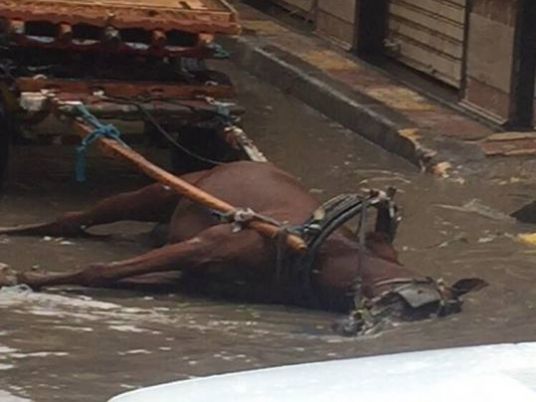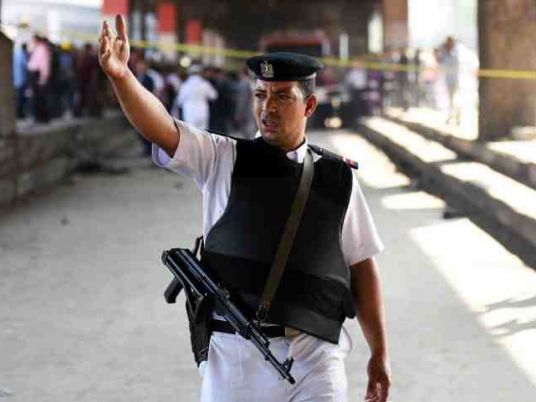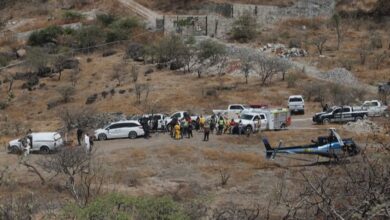The situation in Egypt’s Sinai between Bedouins and local authorities has recently been the subject of wide debate. Following 2004’s bombing in Taba, 3,000 Bedouins were detained, and residents continue to report mistreatment by the police and a lack of attention and support from the government, stalling development. Mouneer Shash, the former governor of North Sinai, is among the critics of the Sinai police. Shash discussed the issue with Al-Masry Al-Youm.
Al-Masry Al-Youm: What is your thoughts on the recent activity in the Sinai?
Mouneer Shash: First of all, Sinai Bedouins are historically very loyal to their country. The Sinai society kicks out deviants. I think it’s those Bedouins, isolated from their society, who are responsible for the recent problems. However, it’s reasonable for any society to exclude lawbreakers and include others who abide by the law.
Al-Masry: The Ministry of Interior Affairs met with tribal sheikhs and, following these meetings, many detainees were directly released. What is your perspective on this?
Shash: I believe these are positive developments. They prove that the minister understands the Bedouin’s case. I know the minister’s opinion of the situation well, as he was a former Deputy Interior Minister for Sinai Affairs and Suez. He was there in Arish.
Al-Masry: Sinai has so many resources. Why is it waiting to develop?
Shash: Long ago, Sinai was a crossing point for invasions, both into and out of Egypt. Because of this, Sinai was considered a buffer zone. Actions in the Sinai were not taken in the interest of the Sinai people, but toward military progress.
Al-Masry: How did the state deal with Sinai after regaining control of the area?
Shash: It was important to start developing infrastructure. 11,000 kilometers of road were constructed in South and North Sinai by 1994. As for electricity, only 4 megawatts were produced from one station in Arish; the rest of Sinai didn’t have electrical plants. There was only one telephone tower in Sinai, in Arish, and only 29 schools.
Al-Masry: How did Sinai development start? And who was in charge of the planning?
Shash: The National Project for the Development of Sinai was established in 1994 by Kamal el-Ganzouri, who took over the Ministry of Planning and then became a prime minister. When Atef Ebeid came into power, he had other priorities. Everyone in Egypt agrees that Ebeid’s ministry was a failure. The project to develop Sinai stopped.
Al-Masry: How could it stop while you were the prime minister’s adviser for Sinai affairs?
Shash: In 1996, after serving as the governor of Sinai for 14 years, I asked the president to relieve me from the post. I was exhausted. But I told him I was ready to continue serving Sinai in a different capacity, and so he made me the prime minister’s adviser on Sinai affairs. I didn’t have any executive power. All I could do was write a memorandum and submit it to the prime minister.
Al-Masry: Tell us about your experience helping the Sinai Bedouins get ownership of their land.
Shash: When I went to Sinai, the land was owned by the state. I said to the Bedouins, “Whoever cultivates the land, owns it.” They got contracts to their land, and the area of cultivated land rose from 82,000 to 307,000 feddans. Unfortunately, after I left, the lands were repossessed by the state.
Al-Masry: How did this affect the Bedouins?
Shash: It stalled the progress of their society.
Al-Masry: What do you think of that fact that people from Central Sinai are moving to other governorates?
Shash: There are many explanations, among which are the absence of development and the mistreatment of the Bedouins by the police due to a lack of cultural understanding. For example, every tribe has its own sheikh, elected in a specific way. But now, authorities choose sheikhs based on their relationship with the police. Also, can you believe that police detained 3,000 people after the Taba explosions, including women? This had its own impact. Did all of the people of Sinai participate in the Taba explosions? It seemed that police considered every resident a terrorist.
Al-Masry: Is Central Sinai in danger of becoming empty?
Shash: Of course, there’s that danger for all of Egypt, as Central Sinai is representative of problems elsewhere. Militarily, Central Sinai is an important area.
Al-Masry: Is there discrimination against the Sinai Bedouins?
Shash: Most of the residents of Sinai are uneducated, which makes the number of employable people small. When I found a person capable of running for a position, I immediately appointed him. There is the issue of the military college. When I was in office, I discussed this with field marshal, Abu Ghazala, and the interior minister until residents started to apply. Now, the number of those admitted is very low, because no one defends them.
Al-Masry: Drug cultivation and smuggling has increased recently. Why is that?
Shash: In the past, the smuggling rate was very high in Rafah. After agriculture became economically lucrative, smuggling dropped significantly.
Al-Masry: What does the future hold for the Sinai, in your opinion?
Shash: Sinai can truly be an asset to the Egyptian economy if its resources are considered. Sinai covers 61,000 square kilometers, whereas the Delta only covers 22,000 square kilometers. In North Sinai there are plains interspersed with valleys and streams, all of which could be cultivated and developed.
Translated from the Arabic Edition.




